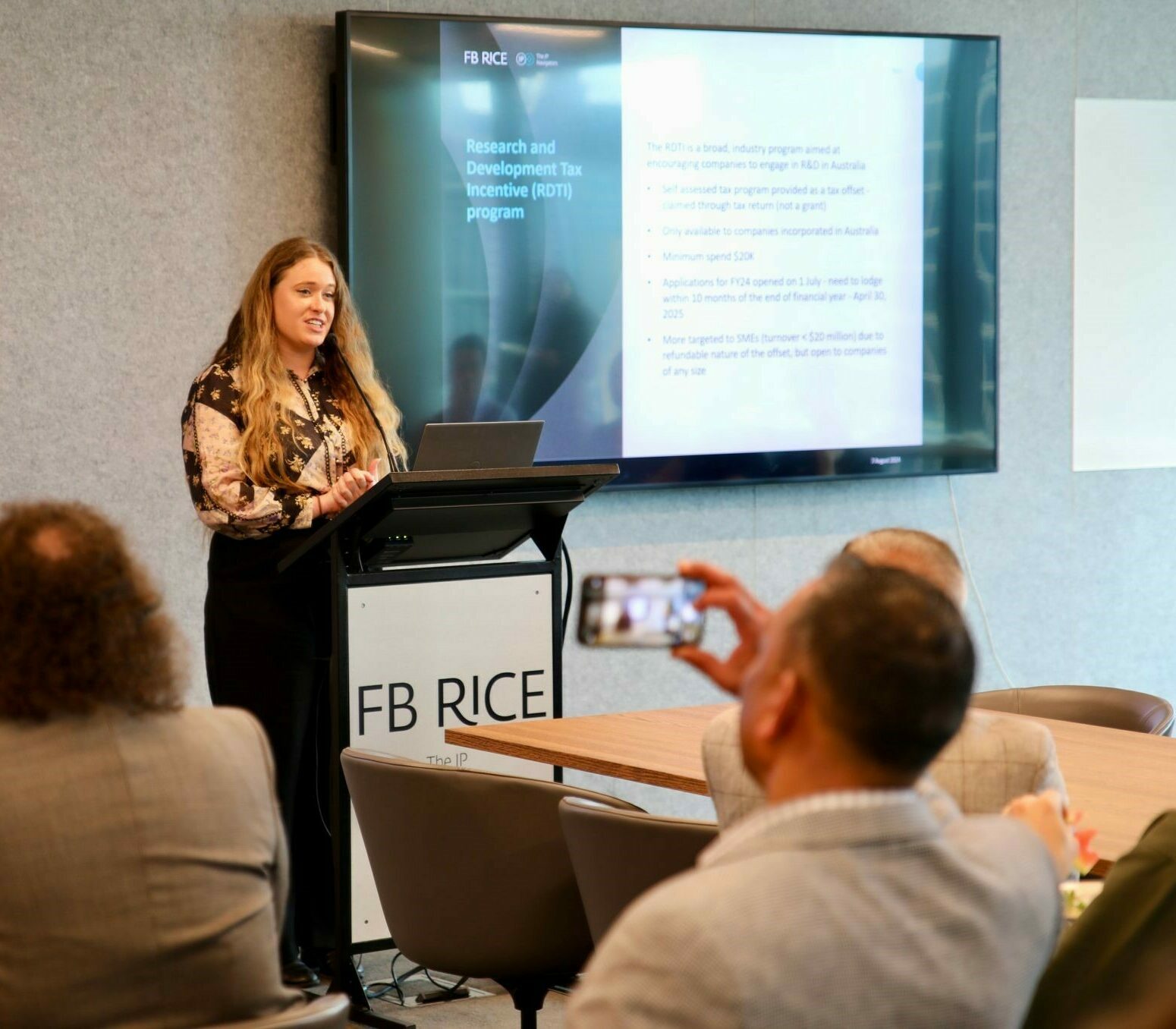Driving Australia's R&D growth: How Caitlyn Wiltshire helps companies unlock funding
Caitlyn Wiltshire is a Senior R&D Tax Consultant. With a passion for biotechnology and a strong background in both scientific research and industry, Caitlyn is dedicated to helping Australian companies navigate the complexities of the R&D tax incentive program and progressing their scientific innovation in Australia. Recently promoted, Caitlyn sat down with us to share insights into her role and the passion that drives her work.
Tell us a bit about your career journey and what inspired you to become an R&D tax consultant?
I've always been fascinated by how science can tackle real world problems, especially in biotechnology. The idea that groundbreaking treatments or technologies can transform lives is motivating. While completing my Master’s in Biotechnology, I was exposed to both the scientific and business sides of the field, and that balance really sparked my interest. My career journey naturally evolved from focusing purely on the science to understanding the broader business and financial landscape behind research and development. From this, I noticed that many companies, especially startups, struggled to access the R&D funding they needed. That’s when I decided to make the leap into R&D tax consulting, where I help these innovative businesses secure tax offsets which, when refundable, can provide the funding they need to turn their ideas into reality.
What does your role as a Senior R&D Tax Consultant at FB Rice entail?
I assist Australian businesses identify and maximise their R&D tax claims. This includes guiding them through the complexities of the R&D tax incentive program and ensuring that their R&D activities are properly documented and eligible for the tax offset. I help clients understand the technical and financial aspects of their claims to position them to receive the maximum benefit. One of the biggest challenges companies face is understanding exactly what qualifies as eligible R&D activities and what expenditure can be claimed as the rules can be complex.
What types of companies or industries benefit most from the R&D tax incentive, and how do you help them identify their eligibility?
Industries like biotechnology, pharmaceuticals, clean tech, and manufacturing are among the biggest beneficiaries of the R&D tax incentive. My role is to understand their specific R&D processes and help them match those activities with the eligibility criteria of the program. Whether it’s a small biotech startup or a large manufacturing company, I work closely with them to ensure they understand what qualifies for funding and how to maximise their claims.
Your academic background includes both the scientific and industry sides of biotechnology. How does this dual perspective benefit your work?
Having both a scientific and industry background allows me to understand the technical aspects of a client’s R&D activities, which is essential when determining if they qualify for the R&D tax incentive. This perspective allows me to effectively bridge the gap between the lab and the financial aspects of a project, ensuring that companies receive the support they need while staying compliant with regulatory requirements.
What is the most rewarding part of working in R&D tax consulting for you?
Most rewarding is seeing the tangible impact of our work on innovation. I’ve had the privilege of helping many clients secure a significant refundable tax offset, which allowed them to accelerate their research and development. It’s truly exciting to watch the breakthroughs that come from the companies we assist, especially in fields like biotechnology and life sciences, where there’s such potential for life changing treatments. Australia is full of brilliant minds working on ideas that could make a huge difference, whether it’s combating cancer or creating devices that improve safety on construction sites. Knowing that I’m playing a part in making these innovations possible is incredibly fulfilling.

What do you enjoy doing outside of work?
When I’m not working, you’ll likely find me curled up with a good book, spending time outdoors, or catching up with friends and family. I love walking in nature, trying (and mostly failing) to surf, or planning my next travel adventure - Japan is next on my list! It’s really important to maintain a good work-life balance, and I’ve found that taking time for hobbies and relaxation keeps me refreshed and motivated at work.
What’s the best piece of professional advice you’ve received?
The best advice I’ve received is to always stay curious and never stop learning. Whether it’s staying abreast with the latest changes in the R&D tax landscape or discovering new advancements in science, there’s always something new to explore. This mindset has kept me motivated throughout my career and helped me stay adaptable in a fast changing field.
You’ve developed a strong passion for helping Australian companies with their R&D funding. What drives that passion?
I'm driven by the incredible research happening right here in Australia. We have so many brilliant people working on ideas that could change lives, whether that’s developing new medical treatments or creating sustainable technologies. I’m passionate about helping these businesses get the support they need to bring their ideas to life, because the world will benefit from their innovations.
As someone working at the intersection of research and development, where do you see the future of R&D funding heading in Australia over the next five to ten years?
I see R&D in Australia continuing to grow, especially in emerging fields like artificial intelligence, gene therapy, and clean technologies. These industries will need increasing financial support to drive their research and commercialisation efforts. I believe the R&D tax incentive will continue to play a crucial role in supporting this growth and ensuring Australian businesses remain at the forefront of innovation.